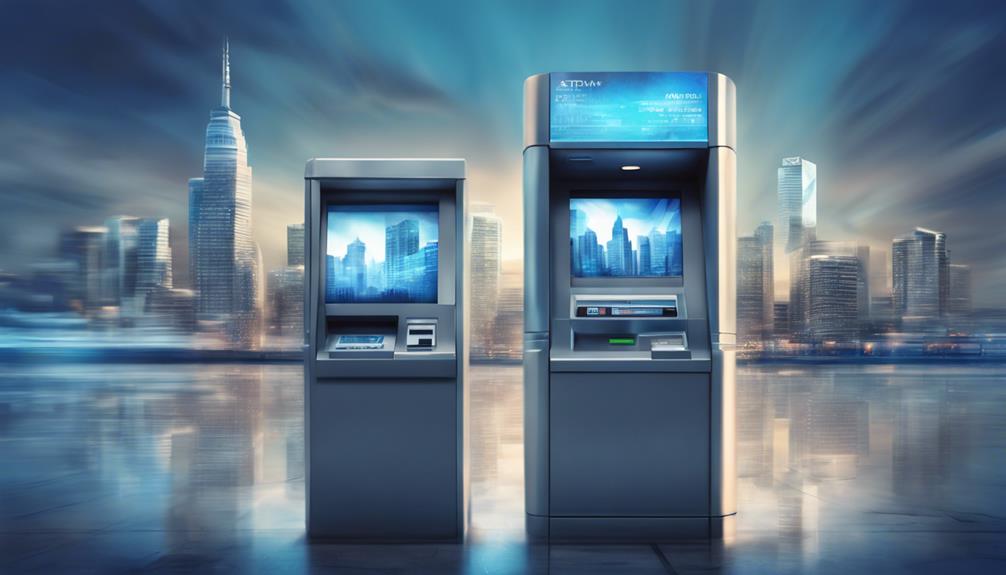Where Do Cryptocurrencies Work

Cryptocurrencies like Bitcoin and Ethereum have become ubiquitous, from coffee shops accepting crypto payments to major corporations integrating blockchain technology for enhanced security measures.
As you manage your digital wallet, consider the vast array of platforms and services—expanding far beyond mere investment opportunities—that now accept or are built around these digital currencies.
The global sprawl of cryptocurrency is evident, but ever wondered what legal or regulatory frameworks govern their usage in different parts of the world, or how they influence economic policies?
Let's unpack the layers that dictate where and how these digital assets operate in various economic landscapes.
Cryptocurrency Transaction Mechanisms

Cryptocurrency transactions start when you send a digital message across the network detailing the transaction specifics.
This initiates the process, which involves several key entities: miners, cryptographic puzzles, the blockchain, and cryptocurrency wallets.
Once you've initiated a transaction, it's combined with others into a block.
These blocks are cryptographic puzzles waiting to be solved by miners.
The miners compete to decode these blocks by solving complex mathematical problems.
This process not only ensures the integrity of the transactions but also confirms and adds them securely to the blockchain.
The crucial role of this process?
Once a miner solves the puzzle, the block is added to the blockchain, cementing your transaction in a public record.
This is proof that when you trade in cryptocurrencies, you're building and upholding the integrity of an expansive, global ledger.
Global Use and Accessibility
As a user, you'll find that cryptocurrencies, such as Bitcoin and Ether, offer global accessibility, allowing you to engage in transactions from virtually anywhere in the world where there's internet access, comprising approximately 63% of the global population.
This widespread availability stems from the decentralized nature of blockchain technology, which powers nearly every cryptocurrency. Unlike traditional banking systems, you don't need a financial institution to facilitate your digital payments. You're part of a global community, connected through the exchange of digital currency.
You might wonder how you can start using cryptocurrencies. It's simpler than you might think.
First, select one of the many crypto exchanges available online, such as Coinbase and Gemini, which operate under regulatory oversight and adhere to 'know your customer' principles to prevent illicit activities.
These platforms provide you the tools to buy, hold, and transfer cryptocurrency securely. Remember, you're not alone in this; millions are navigating this digital arena alongside you, each contributing to the robustness of this digital economy.
Cryptocurrencies aren't limited by national borders or the policies of any single country.
This aspect enhances your freedom to operate on a global scale. Whether you're sending money to a friend across the ocean or paying for goods from an international supplier, cryptocurrencies make these transactions smooth and quick.
You're tapping into a powerful network where everyone finds a place, creating a true sense of belonging in a globally connected financial world.
Investment and Trading Platforms

You have several convenient platforms at your disposal for investing in and trading cryptocurrencies.
Payment services like PayPal, Cash App, and Venmo offer an easy entry. They're great for beginners looking to dip their toes into the crypto pool without feeling overwhelmed.
You can also utilize Webull Pay, which provides access to cryptocurrency trading through its collaboration with Bakkt Crypto Solutions, LLC.
If you're ready to dive deeper, brokerage platforms like Robinhood and eToro are your next stop. They let you trade popular cryptocurrencies such as Bitcoin and Ethereum. You'll feel part of a larger group, trading alongside millions who share your investment enthusiasm.
For those who prefer a traditional approach, the Grayscale Bitcoin Trust lets you buy into Bitcoin through familiar brokerage accounts, which can feel safer and more inclusive, binding your regular investment habits with the burgeoning crypto space.
For a broader approach, consider blockchain-focused ETFs and mutual funds like the Amplify Transformational Data Sharing ETF. This option allows you to engage with the entire blockchain ecosystem, not just individual cryptocurrencies, making you part of a global movement towards transformative financial technology.
Retail and E-commerce Applications
Beyond trading and investment platforms, cryptocurrencies are reshaping how you can shop and conduct transactions in the retail and e-commerce sectors.
Big names like Overstock, Expedia, and Microsoft are now welcoming payments in cryptocurrencies like Bitcoin, offering you more flexibility and choice in how you pay.
This isn't just about large companies; smaller online marketplaces such as OpenBazaar and Purse.io thrive by enabling you to buy and sell with crypto, fostering a sense of community and belonging among users who prefer decentralized, peer-to-peer interactions.
Regulatory and Legal Environments

Navigating the regulatory and legal environments is crucial when you're dealing with cryptocurrencies. As you dive into this dynamic world, understanding these frameworks helps you feel more connected and secure in your investment choices.
Cryptocurrency regulations are changing globally, with countries building new frameworks to govern these digital assets. For instance, the EU has established the Markets in Crypto-Assets (MiCA) to regulate crypto asset service providers, attracting firms seeking regulatory clarity to locations like Paris.
Similarly, Dubai has established the Virtual Assets Regulatory Authority (VARA), providing a robust regulatory framework for crypto firms, while Hong Kong has opened up a pathway for highly regulated retail crypto trading services.
The use of cryptocurrencies, while innovative, comes with a need to understand how they fit within the existing regulatory and legal environments. Unlike traditional financial systems managed by central banks, cryptocurrencies operate in a digital form, creating a new predicament for regulatory bodies.
Many countries are still grappling with how to classify them – as a currency, a commodity, or something else like legal tender?
As you consider entering the cryptocurrency market, it's vital to stay informed about the guidelines that govern cryptocurrency exchanges.
These platforms, where digital currencies are traded, must adhere to specific laws designed to protect users like you. By understanding these regulations, you can navigate the market more effectively.
Frequently Asked Questions
Where Does Cryptocurrency Work?
You're wondering where cryptocurrency thrives? It's significant in Japan, Estonia, and Switzerland's Crypto Valley, known for its progressive stance on cryptocurrencies and blockchain technology. Additionally, in the U.S., cities like San Francisco, home to Silicon Valley and numerous crypto startups, New York, and Miami, where the mayor is a vocal advocate for cryptocurrencies, are hotspots for crypto activities, fostering innovation and financial inclusion.
Where Is Crypto Mostly Used?
Crypto is mostly used in digital transactions, e-commerce, and by businesses accepting online payments. It is particularly popular in countries with high inflation, such as El Salvador, which has made bitcoin legal tender, offering a stable alternative to unstable currencies. Some major online retailers, including Microsoft, Home Depot, and Tesla, have begun accepting cryptocurrencies within their online stores, demonstrating its increasing relevance in the global market.
How Do Cryptocurrency and Money Actually Work?
You see, both cryptocurrency and regular money function as means to transact and store value. While money is government-backed, cryptocurrency relies on blockchain technology to secure and verify transactions without centralized control.
Can You Make $100 a Day With Crypto?
Yes, you can make $100 a day with crypto by trading volatile cryptocurrencies like Bitcoin, mining, investing in ICOs (Initial Coin Offerings) or IDOs (Initial Decentralized Offerings), or lending on crypto platforms like Uniswap and BloFin Exchange. It's risky, so conduct thorough research and understand the market well, considering risks such as security breaches, volatility, and potential losses.
Conclusion
You've now seen how cryptocurrencies like Bitcoin and Ethereum function, allowing you to transact globally without the hassle of traditional banking barriers.
Whether trading via online exchanges, investing via online platforms like Robinhood, or purchasing goods from major retailers and peer-to-peer marketplaces, cryptos offer you versatile options.
However, it's crucial you stay informed about the varying legal landscapes that can affect their use in different regions.
Keep exploring and use cryptocurrencies wisely to make the most of their global accessibility and innovative applications.





